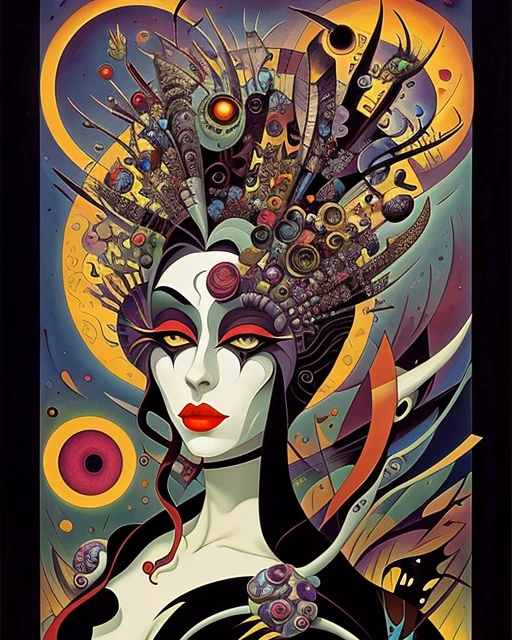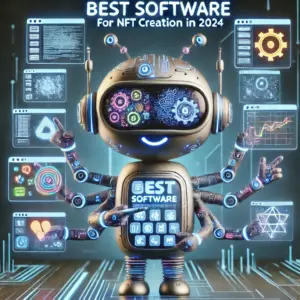The advent of the digital age has brought about a paradigm shift in how we interact with information and content. While the internet has democratized access to a vast repository of digital assets, it has also raised significant challenges regarding ownership and authenticity. Enter non-fungible tokens (NFTs), a revolutionary technology that has emerged as a beacon of hope in this ever-evolving digital landscape.
NFTs, powered by blockchain technology, have the potential to revolutionize the concept of digital ownership, transforming the way we perceive and interact with digital assets. Unlike traditional digital files, which can be easily copied and shared, NFTs are cryptographically unique tokens that represent ownership of a specific digital item. This unique identifier, stored on a decentralized blockchain, provides a tamper-proof record of ownership that can be easily verified.
The Disruptive Impact of NFTs on Digital Ownership
NFTs have the potential to disrupt the existing digital ownership paradigm in several ways:
1. Establishing Clear Ownership Rights: NFTs provide a secure and verifiable way to establish ownership of digital assets, ensuring that creators and collectors can assert their rights and protect their intellectual property.
2. Preventing Digital Piracy and Counterfeiting: NFTs make it nearly impossible to counterfeit digital assets, as each token is unique and cannot be replicated. This can help combat digital piracy and protect the value of digital creations.
3. Enabling New Revenue Streams for Creators: NFTs offer creators direct access to a global marketplace, allowing them to sell their digital creations directly to consumers without intermediaries. This can lead to more equitable compensation for creators and a more transparent value exchange.
4. Fostering Community Engagement and Collaboration: NFTs can promote a sense of community and collaboration among creators and collectors. By interacting with and owning NFTs, individuals can become part of a vibrant online ecosystem.
5. Empowering Creators in the Metaverse: NFTs are playing a crucial role in the development of the metaverse, a virtual world where people can interact, socialize, and conduct business. NFTs can represent ownership of digital items, virtual land, and other assets in the metaverse.
NFTs and the Future of Digital Ownership
The impact of NFTs on digital ownership is still unfolding, but the potential is immense. As the technology continues to mature and adoption grows, we can expect to see even more innovative applications of NFTs that will further redefine our relationship with digital assets.
Here are some potential future scenarios where NFTs could play a transformative role:
1. Secure and Verifiable Digital IDs: NFTs could be used to create secure and verifiable digital IDs, replacing traditional physical or paper-based IDs. This could streamline identity verification processes and enhance data security.
2. Personalized and Authenticated Digital Experiences: NFTs could be used to create personalized and authenticated digital experiences. For instance, NFTs could be used to gate access to exclusive content, events, or services.
3. Gamified Intellectual Property Management: NFTs could revolutionize the management of intellectual property rights in the creative industries by providing a secure and transparent platform for licensing, royalties, and other forms of compensation.
4. Traceable Supply Chains for Digital Goods: NFTs could be used to establish transparent and traceable supply chains for digital goods, ensuring authenticity and provenance. This could be particularly valuable in the fashion and collectibles industries.
5. Decentralized Governance of Digital Communities: NFTs could play a role in the governance of decentralized communities and organizations, allowing members to vote on decisions and participate in the decision-making process.
The possibilities are endless, and the future of digital ownership is likely to be shaped by NFTs in ways we can only begin to imagine. As this technology continues to evolve, we can expect to see a paradigm shift in how we interact with, own, and value digital assets in the years to come.
Table of Contents:
NFTs in Action: Examples of Real-World Applications
To better understand the potential of NFTs in redefining digital ownership, let’s explore some real-world examples of how this technology is being used in various industries.
1. Digital Art and Collectibles: NFTs have revolutionized the art world by providing creators with a secure and verifiable way to sell and authenticate their digital artworks. Notable examples include the $69 million sale of Beeple’s “Everydays: The First 5000 Days” and the record-breaking sale of Jack Dorsey’s first tweet as an NFT for $2.9 million.
2. Music and Entertainment: NFTs are also transforming the music industry, enabling musicians to sell their music directly to fans and create exclusive experiences for NFT holders. For instance, Kings of Leon released their latest album as an NFT, granting holders early access to the album, exclusive merchandise, and personalized experiences.
3. Gaming and Virtual Worlds: NFTs are playing a pivotal role in the gaming industry by allowing players to truly own and trade in-game assets. This creates a more immersive and engaging gaming experience, as players can profit from their in-game accomplishments and build their own economies within the gaming ecosystem.
4. Sports and Collectibles: NFTs are bridging the gap between the physical and digital worlds of sports. For example, NBA Top Shot allows fans to collect and trade digital versions of NBA highlight moments, while Sorare empowers fantasy football enthusiasts to own and manage virtual teams consisting of licensed football players.
5. Event Tickets and Hospitality: NFTs are transforming the ticketing industry by providing a secure and tamper-proof way to issue and manage event tickets. This can help prevent counterfeiting and scalping, ensuring a more equitable distribution of tickets and better experiences for attendees.
6. Supply Chain Management and Authentication: NFTs are being used to track the provenance and authenticity of physical products, particularly in industries where counterfeiting is a significant issue. For example, LVMH, a luxury goods conglomerate, is using NFTs to verify the authenticity of its products.
7. Education and Certification: NFTs can be used to represent digital certifications, diplomas, and badges, providing a secure and verifiable way to authenticate educational achievements. This could streamline the process of verifying credentials and enhance transparency in the education sector.
8. Real Estate and Property Ownership: NFTs are exploring the potential to represent ownership of real estate and property rights. This could lead to a more transparent and efficient system for managing property transactions and intellectual property rights in the real estate industry.
9. Medical Records and Data Ownership: NFTs could revolutionize the way medical records and patient data are managed, providing individuals with greater control over their own health information and allowing for more secure and transparent sharing of data among healthcare providers.
10. Voting Systems and Governance: NFTs could be used to create secure and verifiable voting systems, ensuring that every vote is counted and that election results are tamper-proof. This could enhance transparency and trust in democratic processes.
These examples showcase the diverse applications of NFTs in redefining digital ownership and transforming various industries. As the technology continues to evolve, we can expect to see even more innovative and transformative uses of NFTs that will further shape the future of our digital world.







